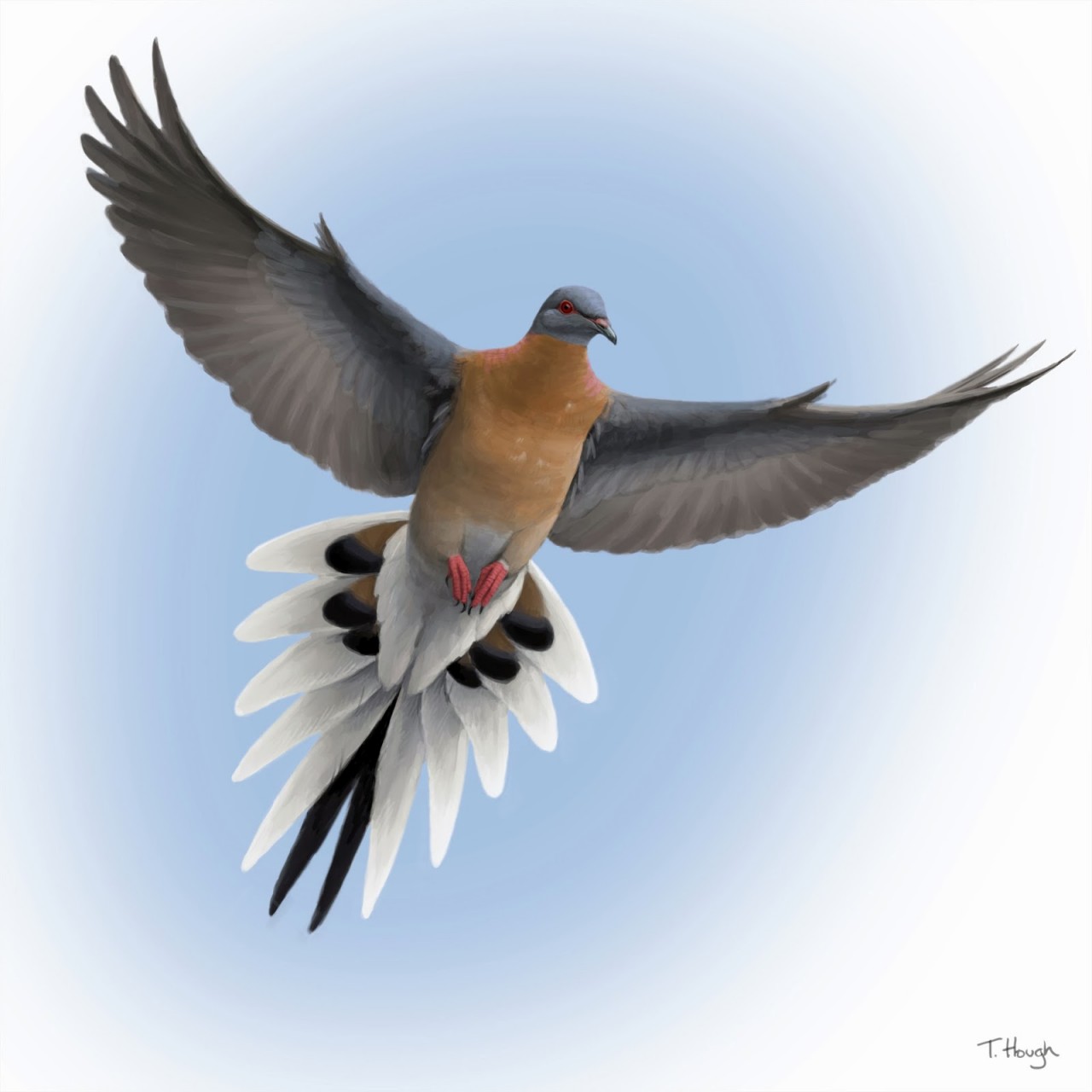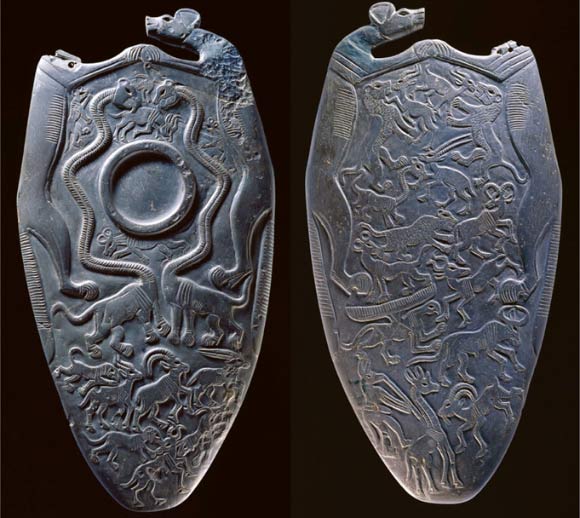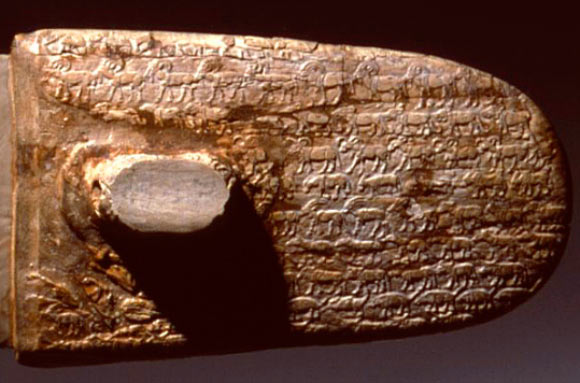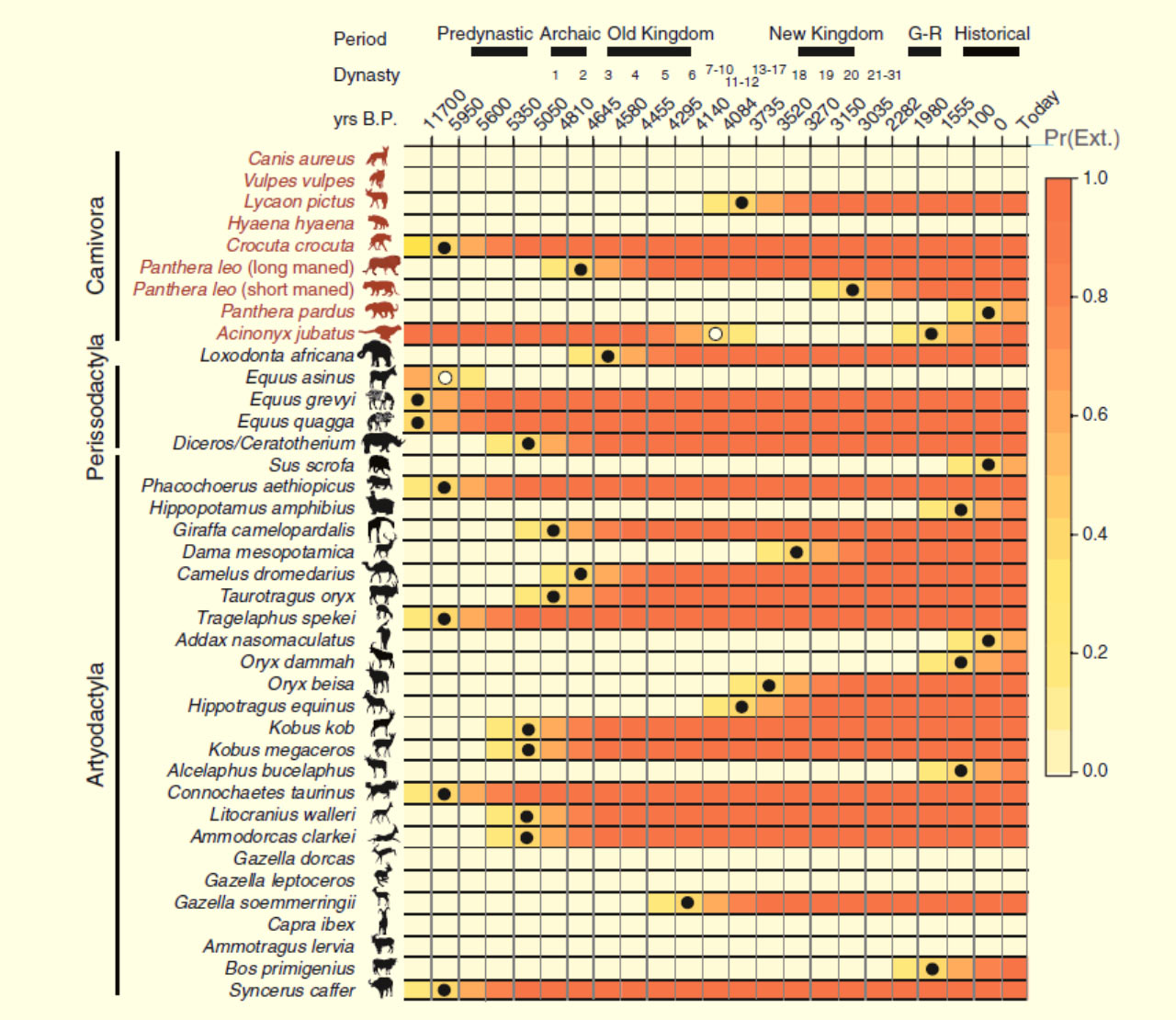It looks like you're using an Ad Blocker.
Please white-list or disable AboveTopSecret.com in your ad-blocking tool.
Thank you.
Some features of ATS will be disabled while you continue to use an ad-blocker.
share:
I skipped out to the beach earlier. Thanks everyone for their replies thus far.
a reply to: SLAYER69
Earth caused vs Homo sapien caused... hmm
So..if a predator is so successful that it wipes out a prey that is barely hanging on that is ok.
But if man is the predator who wipes out a prey that is barely hanging on, that is not.....
Or, more aptly, if man's activities wipes out a species that is barely hanging on that is not ok.
Not trying to be a jerk, but have we been responsible for wiping out a fully successful species? If we have, then whatever we did we need to use the same methodology to wipe out cockroaches and mosquitoes lol
Earth caused vs Homo sapien caused... hmm
So..if a predator is so successful that it wipes out a prey that is barely hanging on that is ok.
But if man is the predator who wipes out a prey that is barely hanging on, that is not.....
Or, more aptly, if man's activities wipes out a species that is barely hanging on that is not ok.
Not trying to be a jerk, but have we been responsible for wiping out a fully successful species? If we have, then whatever we did we need to use the same methodology to wipe out cockroaches and mosquitoes lol
Thread update.

100 years remembrance for the last passenger pigeon that lived

100 years remembrance for the last passenger pigeon that lived
The passenger pigeon was different from the city pigeon you know today. They had blue wings, and they were sleek, with an hourglass neck and iridescent blue body that was supported by an apple breast and complemented by a white underside. They flew or flocked in billions, and they carried with them a mystery and a phenomenon of their own as they migrated either north or south.
Today at the Smithsonian, Martha and two dead pigeons of its kind are exhibited to mark their extinction story. It’s now a centennial celebration for the extinct passenger pigeon, and Martha and two of her colleagues are displayed for all to see, behind a glass wall. Some scientists and researchers are probably trying to resurrect the passenger pigeon today, and they are experimenting with DNA and biotechnology to achieve their aims, but will the birds like to live today with us again?
edit on 1-9-2014 by SLAYER69 because: (no reason given)
a reply to: SLAYER69
nice thread....we also have the ability to sustain many more people than we currently have if we just used the right methods which are readily available.......the only reason to bring back certain species would be because of their symbiotic relationship with the Eco-systems which is so necessary for life to continue and thrive...
just look at suburbia it is organized chaos,so much land wasted...so much water polluted...if only greed could be replaced with a need to return the land back to its natural balance
nice thread....we also have the ability to sustain many more people than we currently have if we just used the right methods which are readily available.......the only reason to bring back certain species would be because of their symbiotic relationship with the Eco-systems which is so necessary for life to continue and thrive...
just look at suburbia it is organized chaos,so much land wasted...so much water polluted...if only greed could be replaced with a need to return the land back to its natural balance
a reply to: bbracken677
we are the new kids on the block...
i am not so sure we are qualified to make that decision
we are the new kids on the block...
Not trying to be a jerk, but have we been responsible for wiping out a fully successful species? If we have, then whatever we did we need to use the same methodology to wipe out cockroaches and mosquitoes lol
i am not so sure we are qualified to make that decision
originally posted by: hopenotfeariswhatweneed
a reply to: bbracken677
we are the new kids on the block...
Not trying to be a jerk, but have we been responsible for wiping out a fully successful species? If we have, then whatever we did we need to use the same methodology to wipe out cockroaches and mosquitoes lol
i am not so sure we are qualified to make that decision
That was a statement to illustrate a point. A successful species is not so easily wiped out even though man is doing his best to kill them off.
In other words, species that man has 'wiped' out accidentally would pretty much have been species on the verge of extinction anyway.
An argument could be made that species such as tigers and other predators that man has displaced and driven to near extinction were successful, but were competitors of man and over the long haul could not survive without help. This I do believe to be the case.
It would appear that mammals are like the huge reptiles which once ruled the earth: The next to suffer from a mass extinction event. The insects seem to be the future rulers of the world, since they are very successful at surviving man.
a reply to: bbracken677
i can see what you are getting at....i was more thinking along the lines of key animals in an Eco-system....don't get me wrong all animals that have been around all this time surely play their part,as is displayed in this vid here
but if we were to remove something like sharks from say over fishing that could start a chain reaction not even the insects would survive....surviving man is one thing ..surviving nature if she breaks is a whole other kettle of fish
i can see what you are getting at....i was more thinking along the lines of key animals in an Eco-system....don't get me wrong all animals that have been around all this time surely play their part,as is displayed in this vid here
but if we were to remove something like sharks from say over fishing that could start a chain reaction not even the insects would survive....surviving man is one thing ..surviving nature if she breaks is a whole other kettle of fish
a reply to: hopenotfeariswhatweneed
Methinks you do not give enough credit to Mother Nature. There have been several mass extinction events in the past, and yet life has continued. Unless we resort to lobbing nukes around willy nilly I do not believe man can duplicate those mass extinction level events...at least, not by accident.
Methinks you do not give enough credit to Mother Nature. There have been several mass extinction events in the past, and yet life has continued. Unless we resort to lobbing nukes around willy nilly I do not believe man can duplicate those mass extinction level events...at least, not by accident.
a reply to: bbracken677
thats not quite what i meant i was more referring to our survival as the human species.....people often say we are going to kill the planet...which as you say wont happen,the earth will spit us off and start again
thats not quite what i meant i was more referring to our survival as the human species.....people often say we are going to kill the planet...which as you say wont happen,the earth will spit us off and start again
originally posted by: butcherguy
a reply to: SLAYER69
They were hunted to extinction by market hunters, so they were apparently good eating.
and butchered by illegals...
lol. 1/2 pound of mammoth burger, please. 85/15?
bring back the mega-fauna.
that was only 13k ya.
i don't believe we wiped them out. no way we could kill all of them, unless we got real stupid with guns.
and they didn't have guns, did they?
a reply to: hopenotfeariswhatweneed
With regards to extinctions, then, sad to say but most animals could go extinct and not affect man at all. There are key species, such as bees, that would have a severe impact on the growing of food. However, species such as the spotted owl which would not impact our lives whatsoever.
I think that as long as bees and a select few other insects survived us, that the rest of the mammalian kingdom could go down the tubes will little impact. Obviously we will have our domesticated animals such as cows and chickens, but there are numerous other animals that, if extinct, would not slow our population growth whatsoever.
Would it be a tragedy to lose the beauty and diversity of nature? Absolutely! I do not endorse man doing whatever he likes at the expense of nature...I just do not believe it would necessarily cause our extinction.
Obviously, if we cut down all the forests and paved the land there would be issues.... but forests will be replanted for the simple reason we have a voracious appetite for the fiber trees provide. The paper and lumber companies typically plant more trees than they cut, year after year after year. They plan ahead.....
With regards to extinctions, then, sad to say but most animals could go extinct and not affect man at all. There are key species, such as bees, that would have a severe impact on the growing of food. However, species such as the spotted owl which would not impact our lives whatsoever.
I think that as long as bees and a select few other insects survived us, that the rest of the mammalian kingdom could go down the tubes will little impact. Obviously we will have our domesticated animals such as cows and chickens, but there are numerous other animals that, if extinct, would not slow our population growth whatsoever.
Would it be a tragedy to lose the beauty and diversity of nature? Absolutely! I do not endorse man doing whatever he likes at the expense of nature...I just do not believe it would necessarily cause our extinction.
Obviously, if we cut down all the forests and paved the land there would be issues.... but forests will be replanted for the simple reason we have a voracious appetite for the fiber trees provide. The paper and lumber companies typically plant more trees than they cut, year after year after year. They plan ahead.....
I saw this today and thought it would be in interesting addition to the thread.
This is an article in which they used ancient artwork to create a record of local mammal extinctions in Egypt over 6000 years.
So in the article they go on to explain how natural processes in nature caused part of the extinction issue as well as human population increases having an influence.



Ancient Egyptian Artworks Help Create 6,000-Year Record of Local Mammal Extinctions
I say bring back the "Griffin" dag on it !
So anyways this makes it pretty clear how one small change can wreak havoc on the system and cause other extinctions. So... if we decide to play "God" what kind of havoc will we create ?
leolady
This is an article in which they used ancient artwork to create a record of local mammal extinctions in Egypt over 6000 years.
So in the article they go on to explain how natural processes in nature caused part of the extinction issue as well as human population increases having an influence.

The obverse and reverse surfaces of a 5,150-year-old siltstone ceremonial palette discovered at Hierakonpolis, Egypt. The object is surmounted and framed by two wild dogs (Lycaon pictus) clasping one another’s paws; other species include ostrich, hartebeest, wildebeest, ibex, oryx, and giraffe; some fictitious animals are also depicted, including serpent-necked panthers, or ‘serpopards,’ and a plausible griffin. Image credit: Ashmolean Museum.

227 animals, including elephants, lions, a giraffe, and sheep, cover both sides of the ivory handle of a ritual knife from the Predynastic Period in Egypt. Image credit: Charles Edwin Wilbour Fund / Brooklyn Museum.

“What was once a rich and diverse mammalian community is very different now. As the number of species declined, one of the primary things that was lost was the ecological redundancy of the system,”
“There were multiple species of gazelles and other small herbivores, which are important because so many different predators prey on them.”
When there are fewer of those small herbivores, the loss of any one species has a much greater effect on the stability of the system and can lead to additional extinctions.”
They identified five episodes over the past 6,000 years when dramatic changes occurred in Egypt’s mammalian community, three of which coincided with extreme environmental changes as the climate shifted to more arid conditions.
These drying periods also coincided with upheaval in human societies, such as the collapse of the Old Kingdom around 4,000 years ago and the fall of the New Kingdom about 3,000 years ago.
“There were three large pulses of aridification as Egypt went from a wetter to a drier climate, starting with the end of the African Humid Period 5,500 years ago when the monsoons shifted to the south. At the same time, human population densities were increasing, and competition for space along the Nile Valley would have had a large impact on animal populations,” Dr Yeakel said.
The most recent major shift in mammalian communities occurred about 100 years ago.
The analysis of predator-prey networks showed that species extinctions in the past 150 years had a disproportionately large impact on ecosystem stability.
“This may be just one example of a larger pattern. We see a lot of ecosystems today in which a change in one species produces a big shift in how the ecosystem functions, and that might be a modern phenomenon. We don’t tend to think about what the system was like 10,000 years ago, when there might have been greater redundancy in the community,” Dr Yeakel said.
Ancient Egyptian Artworks Help Create 6,000-Year Record of Local Mammal Extinctions
I say bring back the "Griffin" dag on it !
So anyways this makes it pretty clear how one small change can wreak havoc on the system and cause other extinctions. So... if we decide to play "God" what kind of havoc will we create ?
leolady
edit on 10-9-2014 by leolady because: fix
I was reading a bit tonight and wandered across some new information that I thought would be an interesting addition to this thread.
Here is a quick video which shows that they believe all the roads, air and shipping routes on the entire planet may have contributed to the stop in biodiversity.
It is being considered a new Geological Era called Anthropocene:
Anthropocene
I also found an article discussing the global shipping routes and its affect on extinction and biodiversity. These routes bring a species into habitats where they don't originally belong. Doing this can change an ecosystem and then in turn cause an extinction of a species.
How Global Shipping Could Change Our Understanding of Biodiversity
leolady
Here is a quick video which shows that they believe all the roads, air and shipping routes on the entire planet may have contributed to the stop in biodiversity.
It is being considered a new Geological Era called Anthropocene:
the period of geological, environmental and biological transformation of the planet by humans.
The Anthropocene is an informal geologic chronological term that marks the evidence and extent of human activities that have had a significant global impact on the Earth's ecosystems.
Many scientists are now using the term and the Geological Society of America entitled its 2011 annual meeting: Archean to Anthropocene: The past is the key to the future.[4] The Anthropocene has no precise start date, but based on atmospheric evidence may be considered to start with the Industrial Revolution (late eighteenth century).[2][5] Other scientists link the new term to earlier events, such as the rise of agriculture and the Neolithic Revolution (around 12,000 years BP). Evidence of relative human impact such as the growing human influence on land use, ecosystems, biodiversity, and species extinction is controversial; some scientists believe the human impact has significantly changed (or halted) the growth of biodiversity.[6] Those arguing for earlier dates posit that the proposed Anthropocene may have begun as early as 14,000 to 15,000 years before present, based on lithospheric evidence; this has led other scientists to suggest that "the onset of the Anthropocene should be extended back many thousand years";[7]:1 this would be closely synchronous with the current term, Holocene.
Anthropocene
I also found an article discussing the global shipping routes and its affect on extinction and biodiversity. These routes bring a species into habitats where they don't originally belong. Doing this can change an ecosystem and then in turn cause an extinction of a species.
How Global Shipping Could Change Our Understanding of Biodiversity
leolady
new topics
-
Elon Musk Calls for Tommy Robinson to be Freed - and Takes a Dig at Starmer
Politicians & People: 17 minutes ago -
Biden to award Presidential Citizens Medal to Liz Cheney and Bennie Thompson
US Political Madness: 46 minutes ago -
Just learned a really helpful trick for internet searches
Computer Help: 6 hours ago -
Not off to a good start
General Chit Chat: 8 hours ago
top topics
-
If they can see...they can read!!
Rant: 15 hours ago, 7 flags -
Just learned a really helpful trick for internet searches
Computer Help: 6 hours ago, 6 flags -
Not off to a good start
General Chit Chat: 8 hours ago, 5 flags -
Biden to award Presidential Citizens Medal to Liz Cheney and Bennie Thompson
US Political Madness: 46 minutes ago, 2 flags -
Elon Musk Calls for Tommy Robinson to be Freed - and Takes a Dig at Starmer
Politicians & People: 17 minutes ago, 1 flags
active topics
-
-@TH3WH17ERABB17- -Q- ---TIME TO SHOW THE WORLD--- -Part- --44--
Dissecting Disinformation • 3881 • : Thoughtful3 -
Trump's idea to make Canada the 51st US state: 'Potential is massive'
Mainstream News • 144 • : Oldcarpy2 -
Just learned a really helpful trick for internet searches
Computer Help • 8 • : McGinty -
Strange fog all over the northern hemisphere
General Conspiracies • 41 • : McGinty -
If they can see...they can read!!
Rant • 26 • : cocnutcrab883 -
Maybe they didn't get away with it: The Lincoln-Kennedy assassination parallels. 7 sentences long.
History • 13 • : BigJohnTally -
The Hand that Rocks the Cradle - Labour Plans “diversities of our society” Curriculum Change
Regional Politics • 19 • : gortex -
Elon Musk Calls for Tommy Robinson to be Freed - and Takes a Dig at Starmer
Politicians & People • 0 • : gortex -
Vehicle Strikes people in New Orleans
Mainstream News • 266 • : Mantiss2021 -
Tesla Cybertruck Explodes in Front of Trump Hotel in Las Vegas
Mainstream News • 83 • : norhoc4
